Arlo Guthrie is a beloved folk singer best known for his talking blues epic “Alice’s Restaurant Massacree” and his Top 40 hit “The City of New Orleans”. But this is just the cream of the crop from dozens of albums that he has released and songs he has performed over decades of touring since the late 1960’s. He also starred in the 1969 movie Alice’s Restaurant, and made a “far out” appearance in the Woodstock movie, which used his song “Coming Into Los Angeles” as accompaniment to footage of some serious reefer gladness.
Guthrie is also the son of folk music legend Woody Guthrie, who wrote hundreds of notable songs including “This Land Is Your Land”. The family’s musical legacy continues with Arlo’s children.
The following interview was for a preview article for Arlo’s concert at the Lobero Theatre on 4/15/13. He answered the questions by email, with answers received on 3/26/13.
Jeff Moehlis: What can we look forward to at your upcoming show in Santa Barbara?
Arlo Guthrie: I’m on a solo tour until June 2013 that is mostly a celebration of my father’s 100th Birthday.
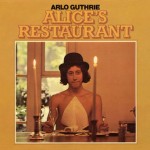
JM: Can you tell me a bit about the origins of your song “Alice’s Restaurant Massacree”?
AG: I could, but I’ll save that for the 2015 tour when “Alice” will be 50 years old, and it’s once again in the set list.
JM: What are your “sober reflections” on Woodstock?
AG: I saw the movie like everyone else. Even seeing it I can’t remember much.
JM: How well did you know Steve Goodman, whose song “City of New Orleans” was a hit for you?
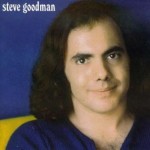
AG: I got to know Steve around 1970 when he gave me a lead-sheet and asked me to please give the song to Johnny Cash. Somehow I never got around to giving it to anyone. But, I called him and asked if he’d minded if I recorded it. We did in 1971 and he was very pleased. We stayed in touch thru the years and had planned to do a tour together when he got out of the hospital where he was being treated for leukemia. I didn’t spend a whole lot of time with him, but I loved that guy. We never got to do the tour either.
JM: When you were growing up, at what point did you realize that your father was more famous than most fathers?
AG: I walked into school one day in the 6th grade and all the kids were singing “This Land.” I didn’t know the words myself. I learned it pretty quickly after that.
JM: Given your family’s musical history, what is your take on “nature versus nurture” when it comes to musical talent?
AG: Well who knows? I didn’t nurture my kids to play music, but somehow they all ended up doing gigs, writing songs, and creating CDs. It’s more like an infectious disease that just keeps returning generation after generation.
JM: Could you describe how you first met Bob Dylan, and what your early impressions of him were?
AG: At this point I’m oddly surprised when I meet people who don’t know who Bob is, let alone who I am. The older I get the more I find it funny when people discover me. And the me that they discover is usually 40 years younger than the me I actually am. So, I can’t begin to imagine what it must be like for Bob – when people remember or discover him. Some dogs are best left sleeping – that’s one.
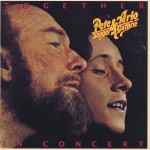
JM: You have known and worked with Pete Seeger over the years. What have you learned from him?
AG: I learned more from Pete than probably anyone else. You don’t get to meet many ‘Masters’ in life and I am forever grateful for the years I spent working with him. I learned from Pete that you can’t explain what you’ve learned. You can only experience it.
JM: What advice would you give to an aspiring musician?
AG: You won’t have a better friend than the music you make, so make it good.
JM: What are your plans, musical or otherwise, for the near future?
AG: It’s a little too late for me to be thinking of another career move. I’ll just keep doing what I’ve done for the last 50 years.
JM: Do you want to set the record straight on anything about yourself or your family?
AG: Hell no. What fun is there in that? If it’s on the record it’s finished.
JM: Where are you responding to me from?
AG: I’m sitting in a tour bus in a parking lot in Lincoln, Nebraska.

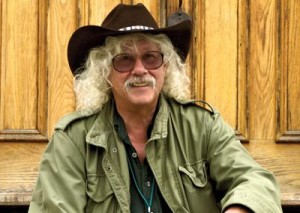
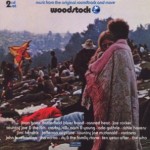
Discussion
No comments for “Interview: Arlo Guthrie”